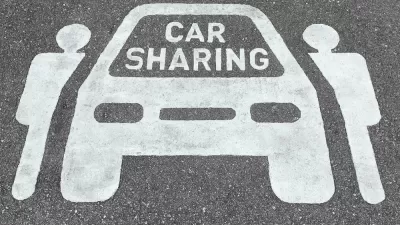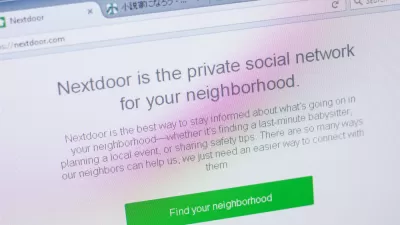Ride share websites and mobile apps take the guesswork out of finding a ride and move social networking offline and onto the open road, fueling a revival of car-pooling, reports Mickey Meece.
It seems like just yesterday that The New York Times relegated car pools to the dustbin of history, along with disco and hitchhiking. Car-pooling, or ride sharing, has seen its ups and downs in popularity in the recent past, and has been under threat by the convenience that comes with owning and driving your own car. But, as Meece notes, ride-sharing and car-pooling, "are having a moment." So what's changed in the past year?
"'It's been a tough sell in the U.S. for a long time,' said David Burwell, director of the energy and climate program at the Carnegie Endowment for International Peace. What is different now, Mr. Burwell said, is the advancement of digital technology and social networking, 'which removed a significant amount of barriers.'"
With a laundry list of ride share sites now available, it seems that people are coming around to the idea again. Social media sites have become such an integral part of people's daily lives that it's no wonder people have started using them as decision-making tools. Meece claims that safety concerns, too, are being satisfied by the requirement of some of these sites to log in through Facebook, which allows users to conduct their own background checks on potential passengers. Ridejoy, for example, "plans to introduce digital identification verification and background checks to its other safety mechanisms, which include Facebook integration, user reviews and references, plus a safety checklist sent to users."
These ride share sites and apps are another way of "taking online social networks offline," allowing virtual socializing to move into the real world. "If car-pooling is done right," said Carpooling.com chief executive Markus Barnikel, "you'll likely have a better sense of the person driving a ride-share vehicle than you do a bus or taxi driver, and can even forge a relationship with them."
FULL STORY: Car-Pooling Makes a Surge on Apps and Social Media

Planetizen Federal Action Tracker
A weekly monitor of how Trump’s orders and actions are impacting planners and planning in America.

Restaurant Patios Were a Pandemic Win — Why Were They so Hard to Keep?
Social distancing requirements and changes in travel patterns prompted cities to pilot new uses for street and sidewalk space. Then it got complicated.

Maui's Vacation Rental Debate Turns Ugly
Verbal attacks, misinformation campaigns and fistfights plague a high-stakes debate to convert thousands of vacation rentals into long-term housing.

In California Battle of Housing vs. Environment, Housing Just Won
A new state law significantly limits the power of CEQA, an environmental review law that served as a powerful tool for blocking new development.

Boulder Eliminates Parking Minimums Citywide
Officials estimate the cost of building a single underground parking space at up to $100,000.

Orange County, Florida Adopts Largest US “Sprawl Repair” Code
The ‘Orange Code’ seeks to rectify decades of sprawl-inducing, car-oriented development.
Urban Design for Planners 1: Software Tools
This six-course series explores essential urban design concepts using open source software and equips planners with the tools they need to participate fully in the urban design process.
Planning for Universal Design
Learn the tools for implementing Universal Design in planning regulations.
Heyer Gruel & Associates PA
JM Goldson LLC
Custer County Colorado
City of Camden Redevelopment Agency
City of Astoria
Transportation Research & Education Center (TREC) at Portland State University
Jefferson Parish Government
Camden Redevelopment Agency
City of Claremont





























